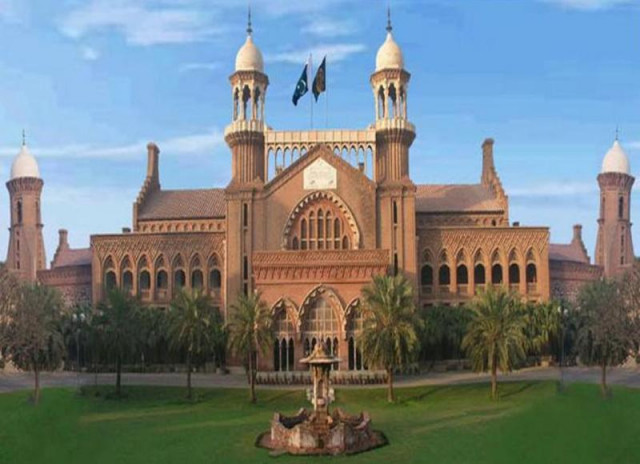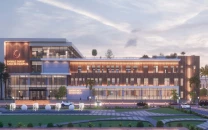Model Town Society stopped from listing judge as member
Justice Ijazul Ahsan of LHC suspended the operation

Justice Ijazul Ahsan of LHC suspended the operation. PHOTO: LHC.GOV.PK
Last week, the Lahore High Court (LHC) stayed the process of listing an LHC judge as member of the Model Town Cooperative Housing Society (MTCHS).
Through their counsel, the petitioners, Jalaluddin Muhammad Akbar, Ghulam Moinuddin Javed and Sajid Arif Nomani, claimed that the judge had apparently agreed to purchase their property from a land grabber.
Justice Ijazul Ahsan of LHC suspended the operation of an order of the circle registrar of cooperative societies directing the MTCHS to list Justice Abdul Sami Khan as a member.
The petitioners submitted that they were legal heirs of the late Shehzadi Badshah Begum who, being a refugee claimant, had been allotted an eight-kanal bungalow (78-C Model Town) on November 18, 1959.
They said they were owners in possession of the property. They said that according to society bylaws, no transaction regarding sale or purchase of the property could be made without obtaining a no-objection certificate (NoC) from the society.
They said any person possessing a property in Model Town was required to be its member.

They said that Kamran Sarfraz, a land grabber, had forged a sale deed for two kanals of the property. They said that on June 25, 2014, Sarfraz had sold the land to Justice Khan for Rs6 million per kanal.
On September 9, 2014, Justice Khan requested the MTCHS with his signatures and mobile number to give him membership of the society. The petitioners’ counsel stated that judges should not make their signatures public. He said the MTCHS had replied to the judge that the seller of the land was not the actual owner of the land. Therefore, they could not grant him membership.
Justice Khan then filed an application with the cooperatives registrar requesting him to direct the MTCHS to list him as a member.
On February 26, 2015, the circle registrar directed the society to list Justice Khan as its member.
The LHC would take up the matter on April 16.
“This is a good example of how civilian courts are different from military courts in the matter of openness. In civilian courts, one can see justice being done. One cannot see that in military courts,” said legal experts.
Advocate Saeed Ahmed Cheema questioned the recent sentencing of six terrorism suspects by a military court. “The decision was made public through a one-liner. Compare this with the LHC order against one of its own judges. Doors of the civilian courts remain open for public. One cannot expect the same in case of military courts,” he said.
Advocate Moeen Ahmed said the open justice principle was central to the rule of law. “Open proceedings help to ensure that trials are conducted properly. It puts pressure on witnesses to tell the truth,” he said.
Advocate Hamid Khan said military courts were based on the principle of Na Wakeel, Na Daleel, Na Appeal (no right to counsel, no arguments and no appeals).
Published in The Express Tribune, April 6th, 2015.



















COMMENTS
Comments are moderated and generally will be posted if they are on-topic and not abusive.
For more information, please see our Comments FAQ